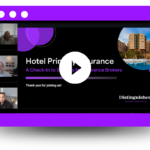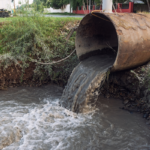How to Avoid the High Costs of Liquor Liability Claims
An evening spent drinking at a Charlotte-based eatery ended in devastation. After consuming about ten drinks within two hours, a bar patron made a decision that he would live to regret—and that would change others’ lives forever. He decided to drive.
The customer got into his car, put the pedal to the metal, and slammed into another vehicle. He had been driving at 100 mph with a blood-alcohol concentration (BAC) almost three times the legal limit. The car he totaled was carrying a young, expecting couple.
The couple was severely injured. Both required extensive surgeries, and their unborn child didn’t survive. Subsequently, the restaurant had a $1.7 million liquor liability claim filed against them for over-serving an intoxicated customer.
A Disaster that Could Have Been Avoided
These types of incidents highlight the risk faced by restaurants and bars that serve beer and liquor. Businesses have both the civil and legal responsibility to not over-serve alcohol and to prevent alcohol-related accidents from occurring on their premises. Otherwise, they can be faced with heavy lawsuits, lose their liquor license, or worse.
How can businesses protect themselves (and customers) from the high costs of liquor liability claims? Below, we cover the facts around liquor liability claims—and how you can avoid them.
Liquor Liability Claims: High Costs that Aren’t Worth the Risk
The outcome of the customer’s actions after leaving the eatery in Charlotte is an example of what could happen to your business if you over-serve alcohol.
The jury, in that case, returned with a verdict against the restaurant, finding them negligent in serving alcohol to a person that was already highly intoxicated. Similar liability claims come to about $2 million per case, varying based on the severity of the injuries.
That’s a big chunk of change.

Dram Shop Laws and Over-serving in Bars and Restaurants
To reduce the number of alcohol-related incidents that result from over-serving at restaurants, bars, and other businesses, many laws and guidelines have been put into place.
For instance, forty-three states and the District of Columbia have dram shop laws.
Dram shop laws make it clear that any business that sells alcohol can be held legally responsible for any accidents that occur because of it. The laws vary significantly across the country in scope and application, but state laws hold businesses liable for serving alcohol to a “visibly intoxicated” person. Some jurisdictions cap damages, while others allow injured parties to sue for punitive damages.
These laws are a stark reminder of the consequences involved when selling alcohol to overly intoxicated patrons. It could cost you a lot of money, or someone’s life, if you don’t prepare properly.
If you are unsure of your state laws, contact your local authorities for more information.
How to Avoid Liquor Liability Claims
To help prevent costly liquor liability claims, restaurant management can educate employees on company policies and responsibilities when serving alcohol.
Here are some things that you can teach your employees to prevent alcohol-related accidents:
- Notify Management
When serving alcohol, notify management if any patrons show signs of intoxication. This gets them on their radar and lets them know they have a situation that needs to be de-escalated and managed.
- Suggest Alternative Transportation
Intoxicated patrons should be urged to take an alternative mode of transportation home. Give them the option of a taxi, ride share, or phoning a friend.
- Call the Authorities
If the patron insists on driving or gets into an altercation on the premises, call the authorities right away. If the patron has already gotten into their car, notify the authorities of the license plate number and the direction in which the patron is driving ASAP.
- Document the Incident
Document incidents involving intoxicated patrons in order to:
- Keep a record of possible negligence
- Know when you need to re-train staff or fix a problem
- Have information on hand in case you are faced with a liquor liability claim or lawsuit
Under the dram shop laws, you are responsible for what your patrons do when they are intoxicated at your establishment. You need to be aware of the consequences your establishment faces when not following proper policy—and know how to avoid the risks altogether.
Have more questions about how to avoid the high cost of liquor liability claims? Send us a message here.




